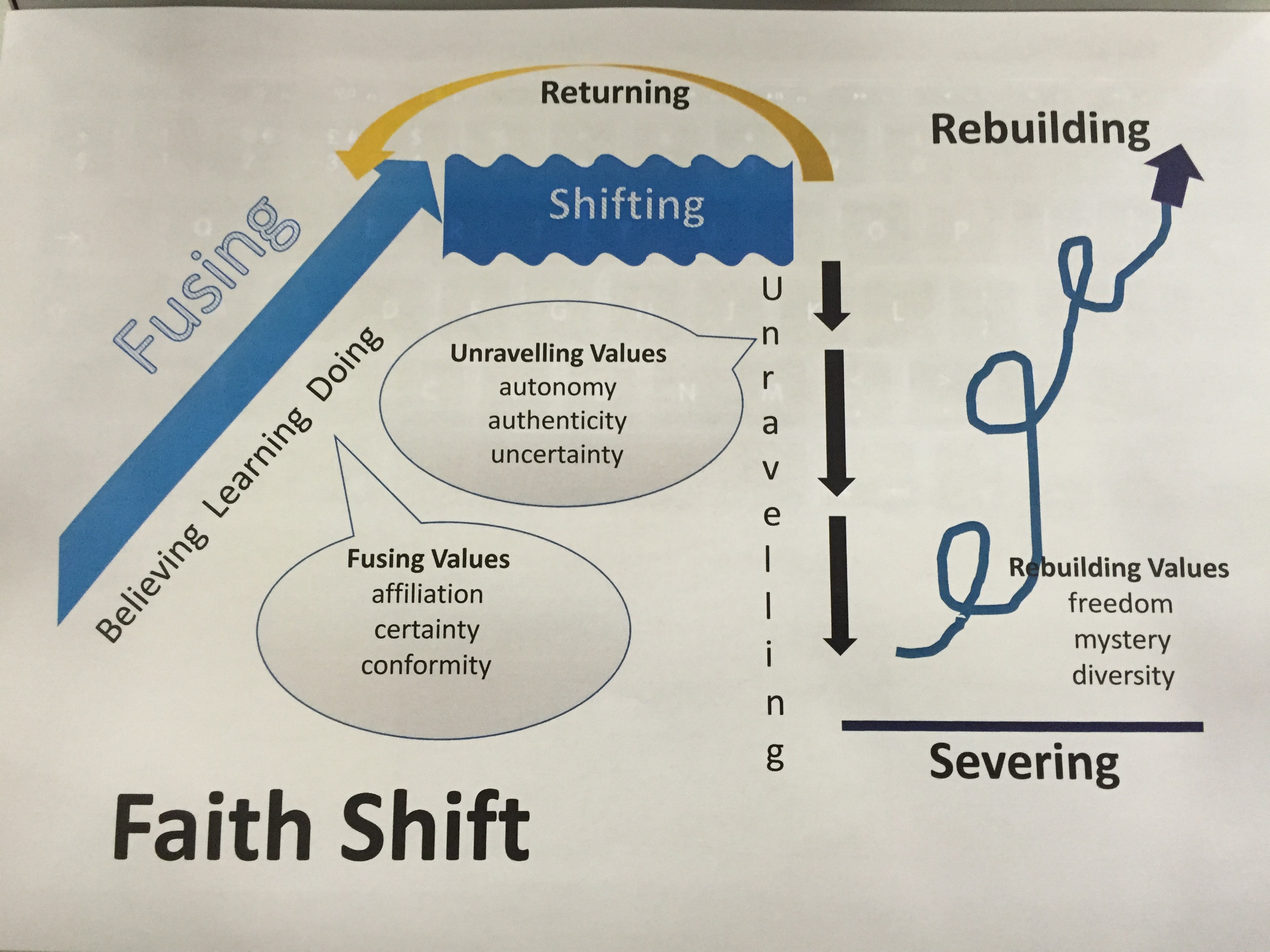‘They devoted themselves to the apostles’ teaching and to fellowship, to the breaking of bread and to prayer. Everyone was filled with awe at the many wonders and signs performed by the apostles. All the believers were together and had everything in common. They sold property and possessions to give to anyone who had need. Every day they continued to meet together in the temple courts. They broke bread in their homes and ate together with glad and sincere hearts, praising God and enjoying the favor of all the people. And the Lord added to their number daily those who were being saved.’
Paul Wood was our keynote speaker at Synod this autumn to speak on intentional faith development. He leads the team, and coordinates the regular gathering of Ministry Development Specialists from across the regions. He is the network’s link with the Queen’s foundation and the City Centre Network. Paul oversees Faith and Worship and works with others across the network to develop the building blocks to new ways of serving God.
He shared with us some of our Methodist history, particularly around the Class meeting and its role in the development of peoples faith within early Methodism. He then looked at how things are different in todays world. Different working patterns, shifts in community make-up and the busyness of many peoples lives have changed they way we do discipleship.
He then asked us three questions to discuss;
- Have you been involved in a small (faith development) group – what was the key to its success?
- If applicable what was the cause of its demise?
- What would you look for in a faith development group?
In the second part of the keynote speech Paul then turned our attention to a book called Faith shift which deals with those trying to find a way forward when everything is falling apart. He shared with us the model that the book puts forward which is in the image below.

- Fusing – affiliation, certainty, conformity – We learn what it means to know God and share this with others. Alton of people sit or stay here for a long time.
- Shifting – Feels like my faith is crumbling. Not sure where you stand. Can happen slowly or suddenly. Often question deep rooted views. Feeling restless. Not knowing where they fit in the church.
- Returning – Some people return to what they knew at the beginning.
- Unravelling – Can be dramatic and painful, Others find it exhilarating and exciting. God’s presence is still there despite some of the things that are being taken away. Need to find safe people to be with.
- Severing – Cutting the ties with anything religious (though many don’t do this completely), God is still there.
- Rebuilding – Freedom, Mystery, Diversity – discovering what God is doing, putting things back together and experiencing God in new ways.
Paul then left us with some more questions to discuss;
- Does the faith shift model resonate with your own experience – or that you have seen others?
- How might our intensional Faith Development work meet the needs of those rebuilding faith?
In the final part of the keynote we looked at the reality that people want to develop their faith and want to learn more but often don’t do much to achieve this. Paul described how this is very similar to when people look to get fit and often join a gym but don’t go or if they do just sit in the sauna hoping to get fit that way.
When we seek to develop our intentional faith develop we need to look at ourselves and how we do everything from prayer, to reading the bible or sharing with others. None of this is easy, particularly if we do it on our own without the help and support of others who are journeying with us.
We have to be intentional about how we do things, having a plan about where we are going and what we are trying to do and develop. There is also a need as churches to be flexible, having different types of groups for different types of people so that there is a place for everyone to find a place to develop their faith. Other points pulled out were;
- Most people would want to know more about faith but find it difficult to fit this in.
- The church could help with this if they were more honest about what needs to stop.
- Those who are ordained have an important role in this but need to be freed up from other tasks.
- People like to belong, but need to know what to belong to.
- We have to be more specific about who a group is for.
- We have to constantly challenge each other to grow and develop our faith.
- We need to learn again to speak about God.
The keynote ended with some questions;
- In your context – how could faith development be made more intentional?
- What could be dropped to make space for it?
A list with discipleship resources can be downloaded here.
